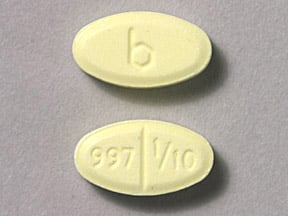
Fludrocortisone Coupons & Savings Card – Discount Prices from $30.89
Fludrocortisone is a synthetic corticosteroid similar to a natural hormone produced by your body. It is primarily used to treat conditions such as Addison's disease and congenital adrenal hyperplasia, where there is insufficient hormone production by the adrenal glands. This medication plays a crucial role in maintaining the balance of sodium, potassium, and water in the body, which is essential for normal blood pressure and the metabolism of carbohydrates. Fludrocortisone is typically taken orally once a day and is available as a more affordable generic option. While it is effective, possible side effects include increased blood pressure and fluid retention. If discontinuation is necessary, your healthcare provider will guide you through a gradual dose reduction to minimize withdrawal symptoms. Always consult with your doctor or pharmacist for personalized medical advice regarding this or any other medication.
Our coupons are free to use. Before paying, show the pharmacist your Fludrocortisone savings card to get your free discount. Use our filters below to edit the prescription box to match your needs. The Fludrocortisone prices will update based on your prescription needs. Above our Fludrocortisone coupons, you can change your location to see pharmacy prices and costs in other areas. We're here to help you buy Fludrocortisone at the lowest price with our prescription discount card.
My prescription
Edit
0.1MG, Fludrocortisone (90 Tablets)
Select pharmacy

CVS
$38.85
COUPON PRICE
Walgreens
$30.89
COUPON PRICE
Albertsons
$38.90
COUPON PRICE
Walmart
$47.70
COUPON PRICEFludrocortisone savings card
Show this card to your pharmacist
Walgreens
$30.89
BIN
ID
PCN
GRP
015995
LHKPX294744
GDC
DR33
Powered by
Fludrocortisone is a synthetic corticosteroid similar to a natural hormone produced by your body. It is primarily used to treat conditions such as Addison's disease and congenital adrenal hyperplasia, where there is insufficient hormone production by the adrenal glands. This medication plays a crucial role in maintaining the balance of sodium, potassium, and water in the body, which is essential for normal blood pressure and the metabolism of carbohydrates. Fludrocortisone is typically taken orally once a day and is available as a more affordable generic option. While it is effective, possible side effects include increased blood pressure and fluid retention. If discontinuation is necessary, your healthcare provider will guide you through a gradual dose reduction to minimize withdrawal symptoms. Always consult with your doctor or pharmacist for personalized medical advice regarding this or any other medication.
Our coupons are free to use. Before paying, show the pharmacist your Fludrocortisone savings card to get your free discount. Use our filters below to edit the prescription box to match your needs. The Fludrocortisone prices will update based on your prescription needs. Above our Fludrocortisone coupons, you can change your location to see pharmacy prices and costs in other areas. We're here to help you buy Fludrocortisone at the lowest price with our prescription discount card.
Related corticosteroids prescriptions
coupons from$248.30Save 67%
coupons from$377.58Save 72%
coupons from$90.47Save 93%
coupons from$1194.67Save 72%
coupons from$147.51Save 74%
coupons from$25.15Save 96%
coupons from$21.67Save 28%
coupons from$10.03Save 74%
More prescriptions for adrenal insufficiency
coupons from$9.17Save 77%
coupons from$20.61Save 70%
coupons from$54.96Save 79%
coupons from$448.11Save 28%
coupons from$20.61Save 70%
coupons from$65.43Save 93%
coupons from$20.61Save 70%
coupons from$127.08Save 85%
Related corticosteroids prescriptions
Alvesco Save 67%coupons from $248.30
Capex Save 72%coupons from $377.58
Locoid Save 93%coupons from $90.47
Pandel Save 72%coupons from $1194.67
Fml Save 74%coupons from $147.51
Solu-cortef Save 96%coupons from $25.15
Cortef Save 28%coupons from $21.67
Tridesilon Save 74%coupons from $10.03
More prescriptions for adrenal insufficiency
Kenalog-40 Save 77%coupons from $9.17
Goodsense Nasal Allergy Spray Save 70%coupons from $20.61
Orapred Odt Save 79%coupons from $54.96
Cortisone Save 28%coupons from $448.11
Nasacort Allergy 24hr Save 70%coupons from $20.61
Trianex Save 93%coupons from $65.43
Gnp 24 Hour Nasal Allergy Save 70%coupons from $20.61
Kenalog Save 85%coupons from $127.08
Fludrocortisone dosage forms
Use our Fludrocortisone 0.1MG coupon with prices from $38.85 for 90 Tablets. You can also use our Fludrocortisone 0.1MG coupon with prices from $2.93 for 1 Tablet. We have a Fludrocortisone 0.1MG coupon with prices from $24.00 for 50 Tablets. You can use our Fludrocortisone 0.1MG coupon with prices from $40.24 for 100 Tablets.
Dosage Quantity Price from Per unit 0.1MG 90 Tablets $38.85 $0.43 0.1MG 1 Tablet $2.93 $2.93 0.1MG 50 Tablets $24.00 $0.48 0.1MG 100 Tablets $40.24 $0.40 0.1MG 500 Tablets $96.00 $0.19
| Dosage | Quantity | Price from | Per unit |
|---|---|---|---|
| 0.1MG | 90 Tablets | $38.85 | $0.43 |
| 0.1MG | 1 Tablet | $2.93 | $2.93 |
| 0.1MG | 50 Tablets | $24.00 | $0.48 |
| 0.1MG | 100 Tablets | $40.24 | $0.40 |
| 0.1MG | 500 Tablets | $96.00 | $0.19 |
